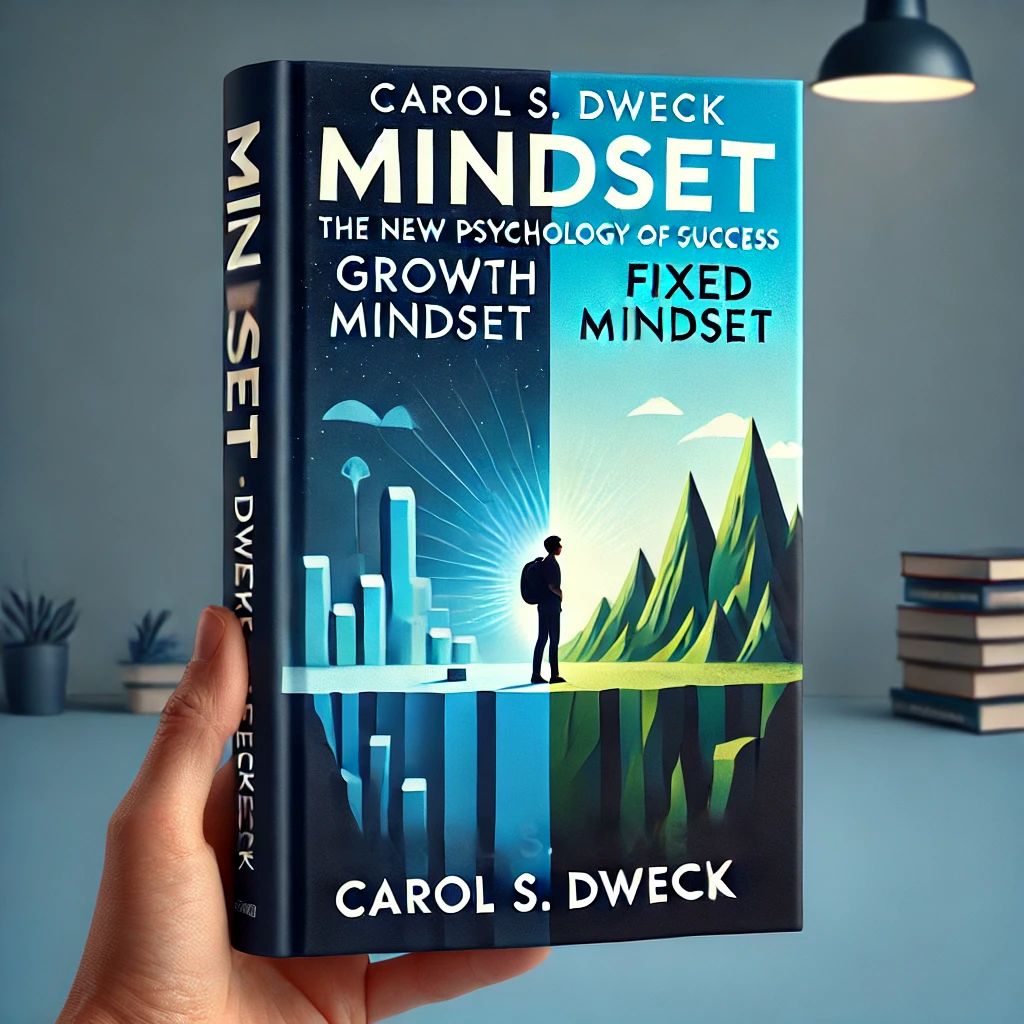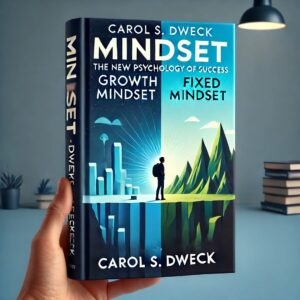The Power of “Mindset: The New Psychology of Success” by Carol S. Dweck

Carol S. Dweck’s groundbreaking book, Mindset: The New Psychology of Success, explores the transformative power of mindset and how it shapes our approach to learning, challenges, and success. Drawing on decades of research, Dweck presents the idea that there are two primary types of mindsets: a fixed mindset and a growth mindset. The crux of the book revolves around understanding these mindsets and how adopting a growth-oriented perspective can lead to greater success in various aspects of life, from academics to personal relationships and career advancement.
The Fixed Mindset vs. Growth Mindset
Dweck explains that individuals with a fixed mindset believe that their abilities, intelligence, and talents are static and cannot be changed. They may shy away from challenges or give up easily, as they fear failure will expose their perceived limitations. This mindset often leads to a plateau in personal and professional growth.
On the other hand, those with a growth mindset believe that abilities and intelligence can be developed through effort, learning, and perseverance. They see challenges as opportunities for growth and view failure as a necessary part of the learning process. People with a growth mindset are more likely to embrace setbacks, learn from their mistakes, and keep moving forward.
The Importance of a Growth Mindset
Dweck’s research highlights the profound impact a growth mindset can have on personal development and success. When we shift our perspective from “I can’t do this” to “I can’t do this yet,” we open the door to greater resilience, creativity, and achievement. This mindset fosters a love for learning and an eagerness to face challenges head-on.
The book demonstrates how a growth mindset can be cultivated in various areas, such as:
- Education: Students with a growth mindset are more likely to persist in their studies, take on new challenges, and ultimately perform better academically. By focusing on effort and strategies rather than innate talent, they build confidence and resilience.
- Business and Career: Leaders and employees who adopt a growth mindset tend to be more adaptable, open to feedback, and willing to take risks. In the workplace, this mindset fosters innovation and collaboration, leading to higher productivity and personal growth.
- Relationships: Individuals with a growth mindset also approach relationships with a belief that communication, understanding, and emotional intelligence can be developed over time. This leads to healthier, more fulfilling relationships.
The Role of Effort, Practice, and Feedback
One of the central themes of Mindset is the idea that effort and practice are key to success. Dweck emphasizes that talent alone is not enough. Instead, deliberate practice, persistence, and a willingness to learn from criticism are what ultimately lead to mastery.
She also highlights the importance of feedback in this process. People with a growth mindset actively seek constructive feedback to improve, while those with a fixed mindset may avoid criticism or take it personally. By viewing feedback as a tool for improvement, we become better equipped to learn and grow.
How to Cultivate a Growth Mindset
Dweck offers practical advice for fostering a growth mindset in ourselves and others:
- Embrace challenges: Instead of avoiding difficult tasks, seek them out as opportunities to stretch your abilities.
- Learn from failure: Instead of seeing failure as a setback, view it as a valuable lesson in what needs to be improved.
- Celebrate effort: Recognize the effort and process of learning, not just the end result. This helps build a positive relationship with challenges and progress.
- Encourage growth in others: As a parent, teacher, or leader, focus on praise for effort, improvement, and perseverance rather than innate ability or results.
Conclusion
Mindset: The New Psychology of Success is more than just a motivational book; it’s a blueprint for personal and professional transformation. By shifting our mindset from fixed to growth-oriented thinking, we can break through the limitations we’ve set for ourselves and unlock our full potential. Carol Dweck’s insightful research provides compelling evidence that success is not defined by natural talent, but by our willingness to embrace challenges, learn from mistakes, and persist in the face of adversity.





